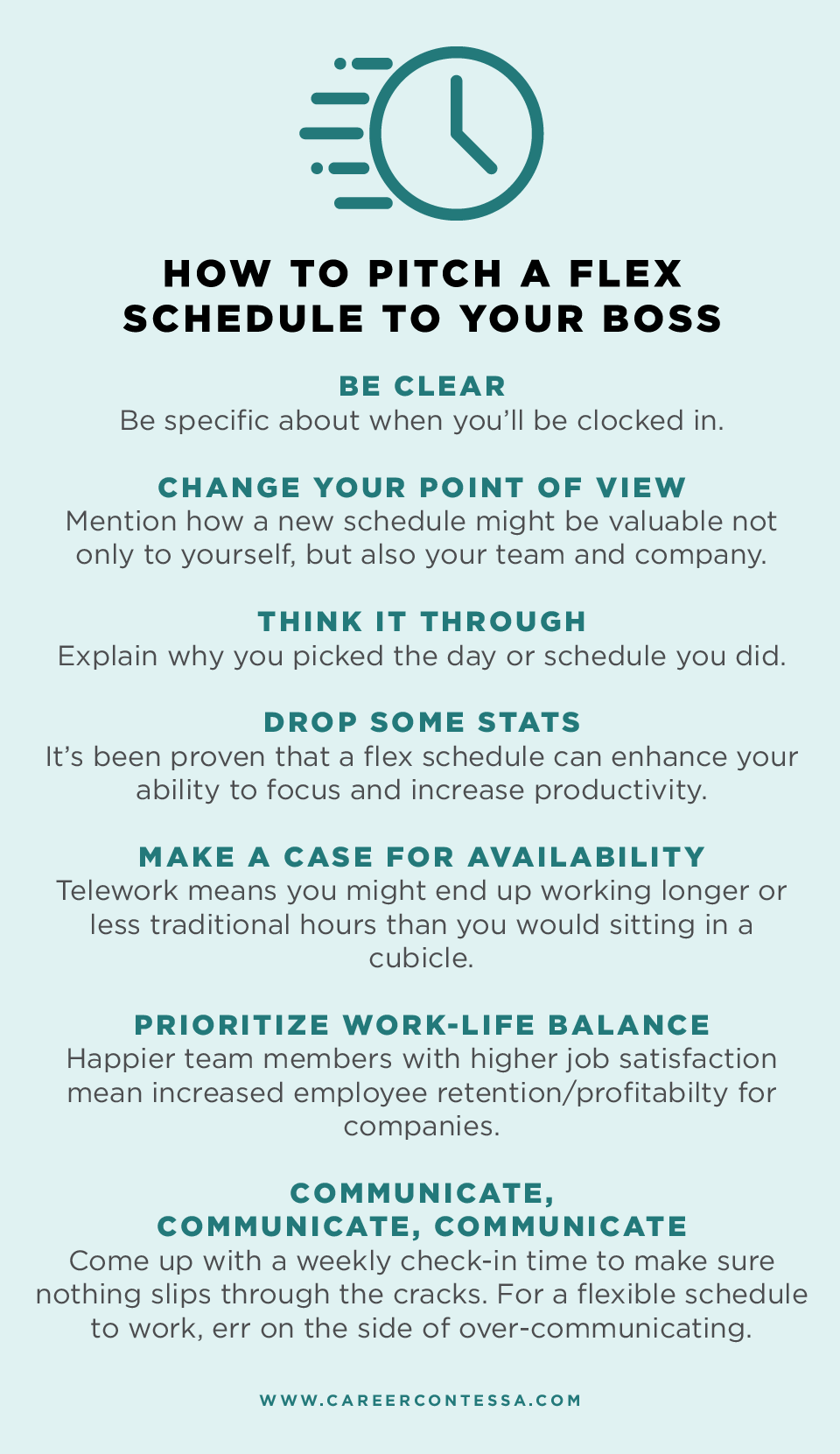If you're reading this while working from home—or facing a potential RTO—pay close attention!
2020 forced many traditional office workers into their living rooms, bedrooms, or (if you're lucky) home offices. After years and years of debating whether or not remote work could work, it...was actually working.
There’s something to be said for flexible work schedules, such as working from home full-time or having alternative office hours (like 40 hours spread across four days each week). If you’re self-motivated and in a field that lends itself to success beyond the four walls of an office (think: creative roles like writing or editing, project management, or certain tech positions), a flexible work schedule might be a great option.
Some of us might be looking at a future that remains remote forever. For those of us whose bosses are dedicated to getting back into the office, you might have a tougher time keeping your flexible work.
1. Set a Consistent Routine and Timeline
When proposing a flexible work schedule, clearly lay
out your proposed plan. Being specific about what days (including hours) you’ll be “at work,” i.e., online and available, leaves no grey areas for confusion about your intention.
2. Put Yourself in Your Boss’s Seat
Consider how a new work routine might be valuable to you and your company in the long term. In other words, how does it support company goals or their bottom line? Maybe you’ll be helping save money by eliminating the need for an office space and supplies for yourself, or you’ll be able to provide more timely solutions to client needs.
3. Be Smart About the Schedule You’re Requesting
For instance, if your company has an all-hands meeting once a month, make it clear you’ll be in the office to attend that. Or, if you’re proposing one work-from-home day per week, select a day that you know is usually quieter or doesn’t have standing client meetings. Be prepared to explain why you picked the day/schedule you are pitching and show how it’ll work for your specific role.
4. A Flex Schedule Can Improve Focus and Increase Productivity
While in sweatpants? #Winning, am I right? In all seriousness, though, flexible work schedules have shown to be more than just a convenient alternative to your daily commute.
A
2016 survey discovered that 91 percent of remote workers believe they’re more productive when working with a flexible schedule.
5. Telework Might Increase Your Availability
In other words, you might end up working longer or less traditional hours than you would sitting in a cubicle… and from anywhere with a strong WIFI connection.
This can be particularly helpful if you work in digital media or other industries that can benefit from attention outside of the normal 9-to-5 framework.
6. Flexible Schedules Can Support Overall Business Growth
In a nutshell, a
flexible work schedule can lead to a better work/life balance. This often means happier employees with higher job satisfaction, which supports a company’s overall retention and profitability.
7. Remember, Communication is Key
In your pitch, lay out a feedback mechanism to keep in touch with your manager/office on a regular basis. Maybe that’s a once a week phone call or a Friday email with bullets laying out your top priorities for the next week. For a flexible schedule to be successful, err on the side of over-communicating, at least in the beginning.












